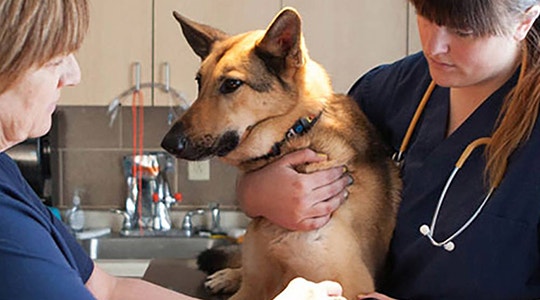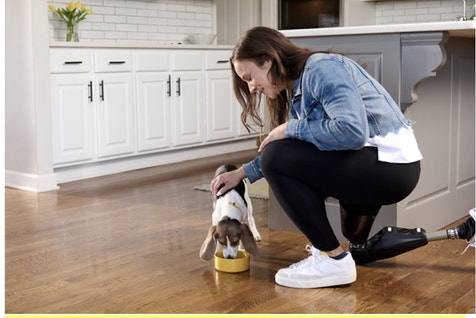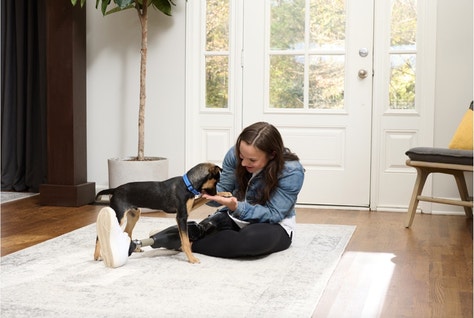
Common diseases in older dogs: Seizures
While seizures are indicative of canine epilepsy, the fact that an older dog can have seizures doesn't mean they are epileptic. In fact, it's uncommon for epilepsy to appear in senior dogs if they didn't already have the condition as a younger dog.
Seizures in older dogs are often symptoms or a result of other conditions:
Brain tumor
Some older dogs develop brain tumors which can put pressure on the brain as it grows, resulting in a seizure. Other symptoms to be on the lookout for include a loss of vision and motor coordination. If your vet suspects your dog has a brain tumor, he will most likely recommend diagnostic tests like an MRI (magnetic resonance imaging) or CAT (computed axial topography). Anti-convulsant medications will not control seizures caused by a tumor.
Kidney disease
Dogs that have a buildup of toxins in the blood or high levels of acidity due to kidney disease can also experience seizures.
Diabetes
If a dog with diabetes has a seizure, it's usually due to an insulin overdose not because the condition has been left untreated. Diabetes that is left untreated will cause stupor or coma, not seizures.
Cushing's Disease
While Cushing's Disease (also known as hyperadrenocorticism) is not typically a direct cause of seizures, some of the circumstances surrounding the condition can lead to seizures. In most cases, Cushing's Disease is caused by a lesion in the pituitary gland at the base of the brain. The majority of these tumors are microscopic in size, however there are cases where larger tumors (known as macroadenoma) can sometimes get big enough to put pressure on the brain and cause seizures. Consult your vet about treatment for Cushing's Disease in dogs. (opens in new window)
What to do if your dog has a seizure
First and foremost, you need to prevent your dog from injuring himself. Dogs can either experience a single convulsion (usually lasting for a minute or two, and doesn't happen again for at least 24 hours) or multiple, continuous convulsions. The latter is most serious and requires immediate veterinary attention. In the case of continuous convulsions, you should gently restrain the dog so it can't injure itself by placing a towel over it. Don't put your hand on the dog or in or near its mouth - you may get bitten. Once you've restrained the dog, get to the vet immediately.




